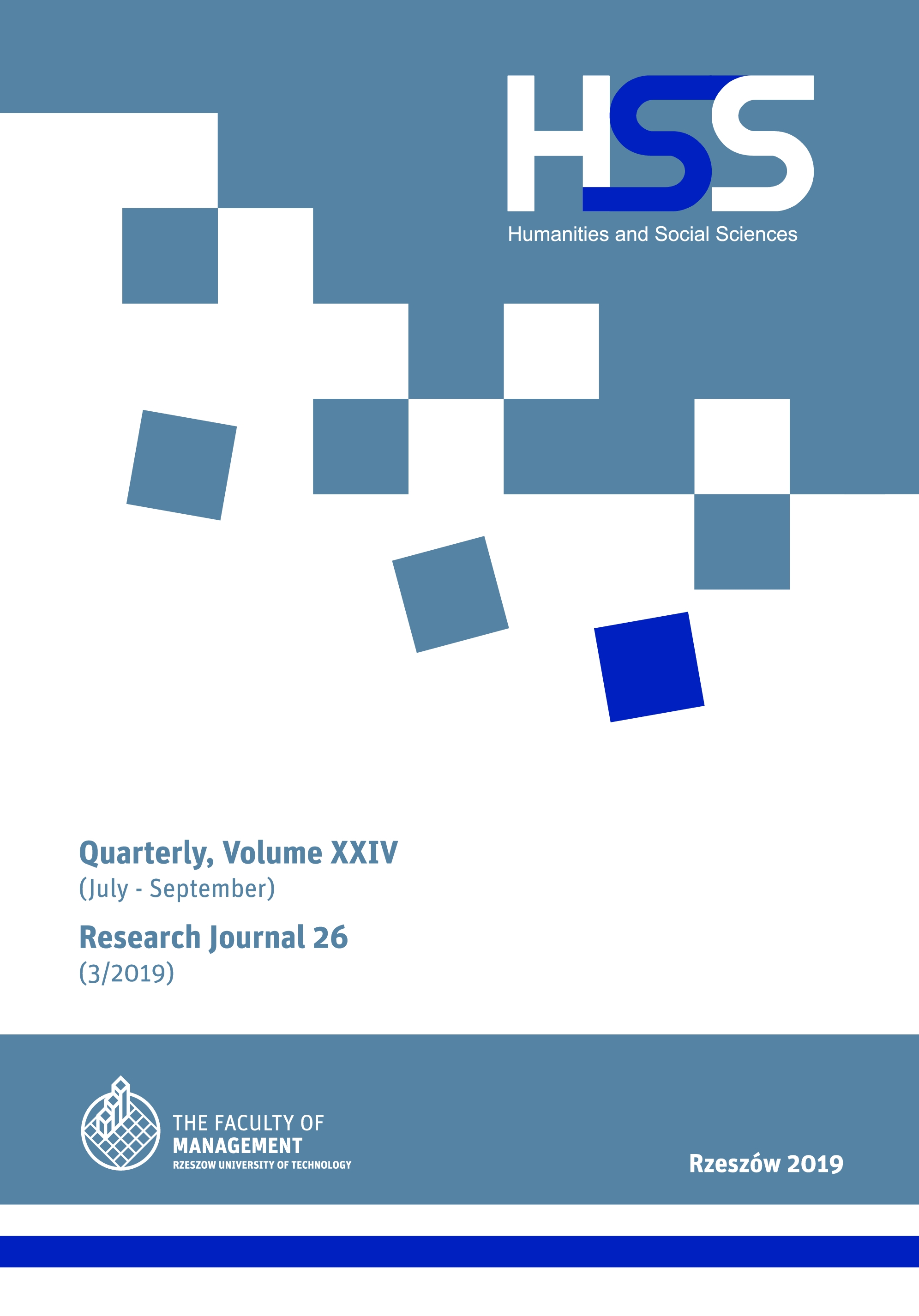Abstrakt
The issue of valuation of home work performed in a household in the context of its remuneration raises a lot of controversy. Unpaid work done for a household by members of the society, often in society, is not considered valuable at all. As it appears, however, it is also a kind of limitation of basic human rights regarding remuneration for the work done or the right to rest. The aim of the article is to stimulate reflection on the issue of unpaid work and its role in the contemporary economy, as well as to indicate the directions of changes in the approach of economists in the treatment of unpaid work in households.
Bibliografia
Albelda, R. (2002). Fallacies of Welfare-to-Work Policies [In:] Albelda R., Withorn A., eds., Lost Ground: Welfare Reform, Poverty, and Beyond, Boston: South End Press.
Aslaksen, I., Flaatten, A., Koren, Ch. (1999). Explorations on Economics and Quality of Life. “Feminist Economics”, 5(2).
Beneria, L. (2003). Gender, Development, and Globalization: Economics as if People Mattered. London: Routledge .
Cagatay, N., Elson, D. (2000). The Social Content of Macroeconomic Policies. “World Development”, Vol. 28, No. 7.
Charkiewicz, E., Zachorowska-Mazurkiewicz, A. (2009). Feminist Dictionary of Economics Concepts, Online Library of Think Tank Feminist [Access: 8.03.2019]. Access on the Internet: https://rownosc.info/bibliography/publication/feministyczny-slownik-pojec-z-ekonomii; https://rownosc.info/dictionary/ekonomia-feministyczna/.
Compare the causes of undeclared work, its scale, character and social consequences. Final report on research. (2008). Warsaw: CBOS, IPiSS.
Compare Unpaid homework – how to treat it, to effectively form the basis of a caring society? (2006). Report, Łódź: Institute of Civil Affairs.
Dijkstra, A.G., Plantenga, J., ed. (2003). Economics and gender. The occupational position of women in the European Union. Gdańsk: GWP.
Elson, D. (2015). Women's empowerment and environmental sustainability in the context of international UN agreements [In:] Hawley J., Why women will save the planet. London: Zed Books.
Elson, D., Jain, D. (2011). Zbieranie feministycznej wiedzy na potrzeby odbudowy postępów polityki publicznej. Kalifornia, Ottawa: New Delhi Thousand Oaks, Międzynarodowe Centrum Badań Rozwoju SAGE.
Ferber, M., Nelson, J., eds., (1993). Beyond Economic Man: Feminist Theory and Economics. Chicago: University Press.
Gideon, J. (1999). Looking at Economies as Gendered Structures: An Application to Central America. “Feminist Economics”, No. 5(1).
Górnicka-Boratyńska, A., Women's homework – should it be payable?, Interview with A. Titkow and D. Duch-Krzystoszek. “Gazeta Wyborcza”, 23.04.2005.
Haug, F. (2011). Perspective four in one. Manifesto for a more just life. Translator M. Boyer, M. Skóra. Online Library of Think Tank Feminist [Access: 8.03.2019]. Access on the Internet: http://www.ekologiasztuka.pl/pdf/f0107haug.pdf.
Łapniewska, Z. (2017). Ethics of caring and the economy of the future. “Theoretical Practice”, No. 2 (24).
—— (2018). Epistemology of Feminist Economics [In:] Giorgino V., Walsh Z., eds., CoDesigning Economies in Transition. Cham: Palgrave Macmillan.
—— (2019). Unpaid work of women, Online Library of the Think Tank Femini-stycznia [Access: 20.03.2019]. Access on the Internet: //rownosc.info/bibliography/publication/feministyczny-slownik-pojec-z-ekonomii.
Mikuta, B. (2000). Studies on the value of homework in the city and in the countryside, with particular emphasis on the implementation of the nutritional function, PhD thesis. Warsaw: SGGW.
Nussbaum, M. (2003). Capabilities as Fundamental Entitlements: Sen and Social Justice. “Feminist Economics” 9(2/3).
Power, M. (2004). Social Provisioning as a Starting Point for Feminist Economics. “Feminist Economics” 10(3), November.
Pszczółkowska, D. (2019). Male and female homework [Access: 8.03.2019]. Access on the Internet: https://wyborcza.pl.
Robeyns, I. (2003). Sen’s Capability Approach and Gender Inequality: Selecting Relevant Capabilities. “Feminist Economics”, 9 (2/3).
—— (2014). Ingrid Robeyns - Will basic income give justice to women ?, transl. M. Szlinder. Theoretical Practice, 10 February [Access: 15.03.2019]. Access on the Internet: http://www.praktykateoretyczna.pl/?s=Robeyns.
Sen, A. (1999). Development as freedom. Oxford.
Szwarc, A., Żarnowska, A. (2000). Równe prawa i nierówne szanse. Warszawa: Wydawnictwo DiG.
Titkow, A., Duch-Krzystoszek, D., Budrowska, B. (2004). Unpaid work of women. Myths, realities, perspectives. Warsaw: IFIS PAN.
Zachorowska-Mazurkiewicz, A. (2010). Recovering citizenship. Macroeconomic analysis of the situation of women in Poland. Online Library of Think Tank Feminist 2010.


